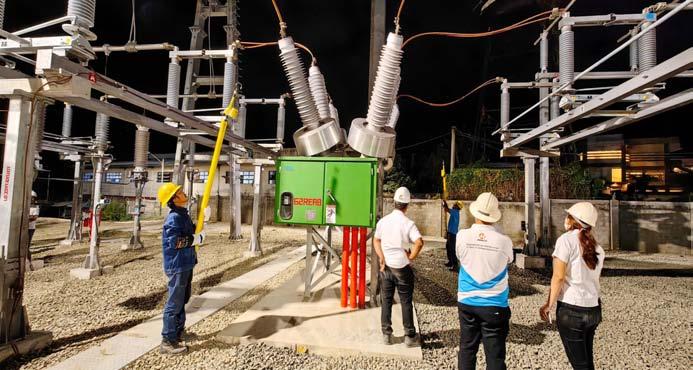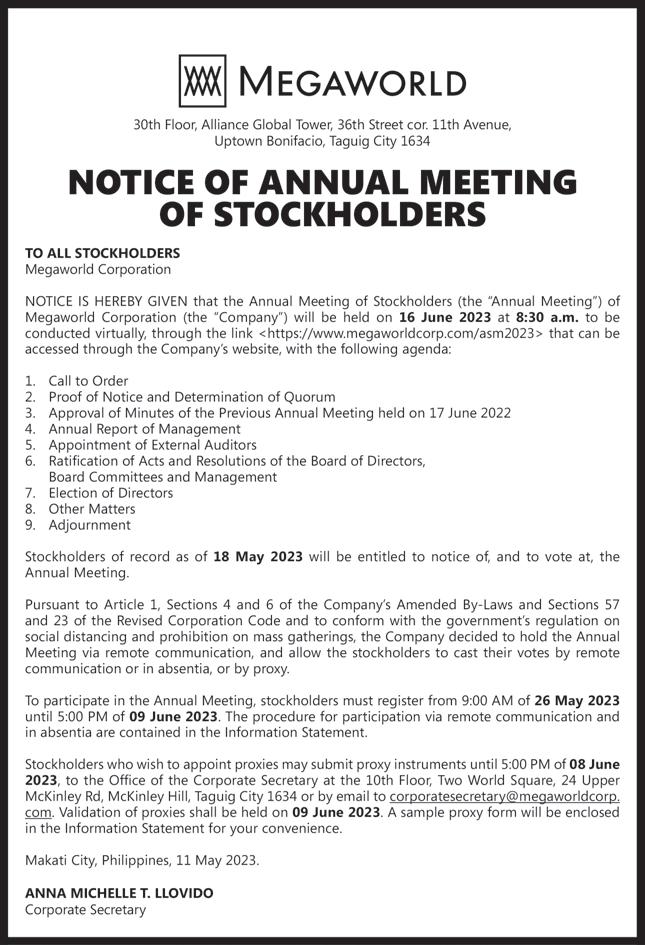
4 minute read
Russia hails China ties amid West pressure
BEIJING—Russia’s prime minister hailed “unprecedented” relations with China despite “sensational pressure” from the West on Wednesday, as he met with his counterpart in Beijing.
China and Russia have in recent years ramped up economic and diplomatic cooperation, growing even closer since Moscow’s invasion of Ukraine despite Beijing’s insistence that it is neutral in that conflict.
Prime Minister Mikhail Mishustin arrived in China on Monday, attending a business forum in Shanghai on Tuesday before traveling to Beijing to meet Premier Li Qiang and President Xi Jinping.
It is the highest-level visit by a Russian official to China since last year’s invasion.
China’s new solon to US arrives in NY
NEW YORK—China’s new ambassador to the United States has arrived in the country, vowing to shoulder the “heavy responsibility” of a superpower relationship that is “facing severe challenges”.
Xie Feng, a career diplomat with extensive experience in Washington, arrived in New York on Tuesday, Beijing’s embassy in the US said in a statement.
He replaces Qin Gang, who left his post earlier this year to serve as China’s foreign minister.
“At present, Sino-US relations are encountering serious difficulties and facing severe challenges,” Xie told reporters at the airport, according to a statement on the embassy’s website.
“I feel both a glorious sense of mission and a heavy responsibility. My colleagues and I will face up to difficulties, fulfil our responsibilities and live up to our mission.”
The US ambassador to China, Nicholas Burns, said Wednesday he had held a “farewell dinner” with Xie “as we manage the ever-challenging US-China relationship”.
“I look forward to working with him in his new role,” Burns said on Twitter.
According to an official government biography, 59-year-old Xie hails from the wealthy eastern province of Jiangsu and holds a master’s degree in management. He has worked in the foreign service since at least 1986, and spent much of the 1990s rising through the ranks of the ministry’s bureau for North American affairs.
He served two stints in China’s outpost in Washington during the following decade, before becoming ambassador to Indonesia.
Most recently, Xie worked as commissioner of Beijing’s foreign ministry in Hong Kong, and as vice minister of foreign affairs. Relations between China and the US have become fraught in recent years, with tensions flaring over trade, technology, human rights and other issues. AFP
“Today, relations between Russia and China are at an unprecedented high level,” Mishustin told Li after a grand welcoming ceremony outside Beijing’s Great Hall of the People on Wednesday.
“They are characterized by mutual respect of each other’s interests, the desire to jointly respond to challenges, which is associated with increased turbulence in the international arena and the pattern of sensational pressure from the collective West,” he said.
Li, in turn, hailed the “comprehensive strategic cooperative partnership between
China and Russia in the new era”.
“I believe your trip to China this time will definitely leave a deep impression,” he said.
China is Russia’s largest trading partner, with trade between the nations reaching a record $190 billion last year, according to Chinese customs data.
Li noted Wednesday that bilateral trade had already reached $70 billion so far this year.
“This is a year-on-year increase of more than 40 percent,” he said.
“The scale of investment between the two countries is also continuously upgrading,” Li added. “Strategic largescale projects are steadily advancing.” Following the talks, ministers from the two countries signed a series of agreements on service trade cooperation and sports, as well as on patents and Russian millet exports to China.
China’s upper hand
Mishustin is accompanied by top offi cials, including Deputy Prime Minister Alexander Novak, who handles energy policy.
China last year became Russia’s top energy customer as Moscow’s gas exports otherwise plummeted due to a flurry of Western sanctions over the invasion of Ukraine.
According to Russian state media, Novak told Tuesday’s forum in Shanghai that Russian energy supplies to China would increase by 40 percent yearon-year in 2023.
Analysts say China holds the upper hand in the relationship with Russia, and that its sway is growing as Mos- cow’s international isolation deepens.
The leaders of both countries are “brought together more by shared grievances and insecurities than by shared goals”, Ryan Hass, a senior fellow at Washington’s Brookings Institution and a former White House official, told AFP.
“They both resent and feel threatened by Western leadership in the international system and believe their countries should be given greater deference on issues implicating their own interests.”
In February, Beijing released a paper calling for a “political settlement” to the Ukraine conflict, but Western countries said it could enable Russia to hold much of the territory it has seized.
During their March summit in Moscow, Xi invited Putin to visit Beijing. AFP
In Brief
Controversial cash for ultra-Orthodox volcano as seen from the San Nicolas de los Ranchos community, state of Puebla, Mexico, on May 23. Authorities raised the warning level for the volcano to one step below red alert, as smoke, ash, and molten rock spewed into the sky posing risks to aviation and far- ung communities below. AFP
JERUSALEM—Israeli lawmakers passed an annual budget Wednesday with controversial allocations for ultra-Orthodox Jews, in a concession to a religious party in the governing coalition that drew protests from the opposition.
Thousands of Israelis marched through Jerusalem on Tuesday to demonstrate against the government’s plans to hand more cash to the ultra-Orthodox minority, accusing the coalition of “looting” state funds.
Earlier this week, Prime Minister Benjamin Netanyahu announced the state would grant married ultra-Orthodox Jewish men engaged in religious study rather than work a total of 250 million shekels ($67.5 million).
The grant was part of an agreement with United Torah Judaism, one of the ultra-Orthodox parties in the coalition, to ensure its support for the budget.
The extra funds are in addition to other budget allocations traditionally made to the ultra-Orthodox through various government ministries.









